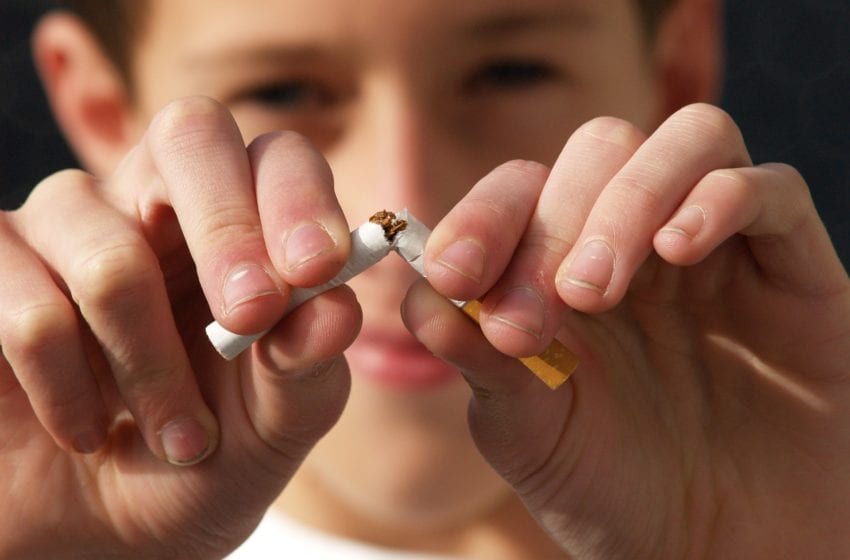New Year resolutions always include commitments to quit smoking. Most people fail not for want of trying but for want of options that can help them. Our interventions to date are not good enough. Will the World Health Organization’s (WHO) campaign to help 100 million people quit tobacco (WHO News Release Dec 8, 2020) make a difference? Is the WHO willing to embrace new methods and emerging scientific data to course correct and in the process save millions of lives?

The WHO depends upon “new contributions from partners” to help smokers quit (WHO News Release Dec 8, 2020), Derek Yach and Chitra Subramaniam write in an opinion for Business Insider. They are as diverse as Amazon Web Services, Facebook, and Google. These digital giants are not known for their solutions to help people quit. Worse, WHO has turned to Allen Carr’s Easyway that has published studies of dubious quality and has a strong opposition to the use of nicotine even in nicotine replacement therapy (NRT Allen Carr, BMJ 2006).
Unfortunately, most of the countries listed as priorities for this campaign have yet to include NRTs in their national drug formularies despite WHO having included it in the Essential Drug list way back (Application for Inclusion of Nicotine Replacement Therapy (NRT) in the WHO Model List of Essential Medicines, WHO, 2009).
WHO should conduct an independent review of the evidence of each partners’ interventions in the very diverse set of countries where they will be tested. Such a review is a basic requirement for making global recommendations. It must be as rigorous and science-based as the processes that were put into action to approve COVID 19 vaccines. (WHO News Release Dec 31, 2020)
Florence, WHO’s robotic digital health worker was launched with this campaign to help smokers quit. Dr. Yach tried it (see Speak to Florence) but found Florence true to its name – robotic and unable to answer simple questions and clearly out of depth when asked real world questions outside of the algorithm. A gimmick of this nature is disrespectful as it mocks those seeking to quit.
It seems that WHO is far more interested in ending the use of tobacco harm reduction products than in saving lives.
The latest Global State of Tobacco Harm reduction (GSTHR) report (GSTHR, Burning Issues 2020) indicates that almost 100 million people are now using a range of such products with most completely off combustible cigarettes and toxic smokeless tobacco products. This report provides convincing evidence that harm reduction products, including snus, e-cigarettes and heated tobacco products, are more effective means of quitting than the use of NRTs, and substantially lower exposure to harmful products of combustion seen in cigarettes and bidis.
In contrast, WHO’s latest report from their expert committee on Tobacco Product Regulation, released December 23rd, recommends banning and prohibiting e-cigarettes and heated tobacco products. This echoes a call by the Union, a Bloomberg Philanthropy financed NGO, to all low and middle income countries (LMICs) to ban such products to “avoid being distracted” by them (WHO Expert Committee Meeting Report, Dec 23, 2020).
Distraction from what one may ask?
This “expert” report did not address snus. That may be because WHO accepts the EC ban as being the basis for its policies despite the recent USFDA decision that led to it being the first class of tobacco harm reductions products to pass its rigorous evaluation process (FDA News Release, Jul 2020).
Before the FCTC negotiations began 20 years ago under Dr. Yach’s leadership of the Tobacco Free Initiative (TFI) WHO invited tobacco industry scientists to present to the fledgling Tobacco Products Regulation Expert Committee on their progress in developing safer tobacco products. The presentations were not useable then for any specific harm reduction recommendations to be made. The hope remained that in time scientific progress would follow. For that reason – and in good faith – harm reduction found its way into the very definition of tobacco control used in the FCTC (WHO FCTC 2004).
Decades have passed and tobacco consumption continues to kill people mainly in LMICs. Science and innovation have permeated every sector of society. Dirty legacy industries are now leaders in driving sustainable development. This is underway in the oil and gas, transport, mining and food sectors. And as the GSTHR and our Tobacco Transformation Index (https://tobaccotransformationindex.org/) bears out, such transformation is underway in the tobacco sector as well. This transformation should be embraced by the WHO not shunned.
Instead of looking into the future and enabling global leadership, the United Nation’s (UN) top health agency is digging into its past with a ferocity that is difficult to comprehend. Ignoring decisions by the United States Food and Drug Administration (FDA), Cochrane Collaborating Centers and other regulatory and science oversight groups indicating the power of THR to increase quit rates more effectively than NRTs for example, or the potential to sharply reduce risks associated with combustible cigarettes or toxic smokeless products.
One hopes that as 2021 unfolds, WHO will take a fresh look at the power of THR to accelerate an end to smoking. A good way to start would be to summon the leading scientists from tobacco and e-cigarette companies to present to the WHO Tobacco Product Regulations Expert Committee in a series of open sessions. The aim could be simple: to assess whether industry has made material progress in developing products able to end smoking in order to truly judge whether the unilateral bans and prohibitions are warranted.
From what we know, the answer is yes. WHO’s unambitious aim of helping 100 million of the 1.1 billion tobacco users quit could be revised upwards dramatically if they were to open up to rapid progress underway in the very companies we rightfully condemned 20 years ago.
Knowledge that ignores science cannot help public health. We are seeing it with the COVID 19 crisis. We are seeing it differently in tobacco control. Time is not on our side.
The views expressed in the above opinion are those of the authors’ and do not necessarily represent or reflect the views of Vapor Voice or its parent organization.
Derek Yach is president of the Smoke Free Foundation, USA. He has spent four decades advancing global public health especially chronic diseases. He was a key architect of the WHO’s FCTC.
Chitra Subramaniam is the founder of CSD consulting Switzerland. A journalist by training and a media entrepreneur she writes on public health, development and trade

